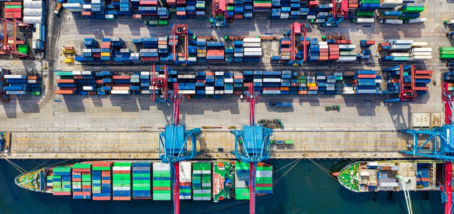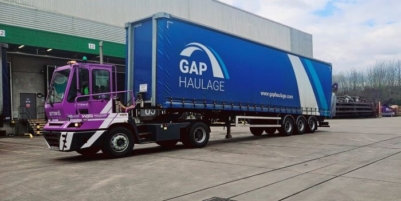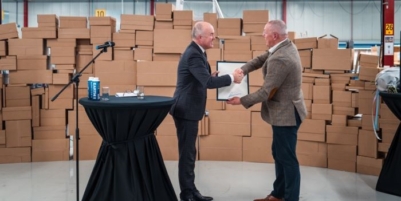-
Nutrivend selects Forterro’s Orderwise to support online expansion and streamline operations - April 11, 2025
-
ARROWXL LAUNCHES AMBITIOUS ZERO WASTE ROADMAP - April 8, 2025
-
THE BCMPA’S NEW CAMPAIGN DRIVES OUTSOURCING SUCCESS IN Q1 - April 7, 2025
-
BLACKOUT TECHNOLOGIES TARGETS TELEMATICS-INTEGRATED MOBILE DEVICE BLOCKING TO COMBAT SMARTPHONE DISTRACTION - April 1, 2025
-
Sparck Technologies awarded Royal designation - March 27, 2025
-
OpenADR Alliance announces first OpenADR 3.0 certified products with EVoke Systems, E.ON Energy and Universal Devices - March 25, 2025
-
Growing fulfilment and contract packer appoints new Managing Director - March 25, 2025
-
When is it time to invest in a WMS? Understanding the key trigger points - March 25, 2025
-
eCapital helps Vantage Recruitment on its journey to financial success - March 24, 2025
-
Hugo Beck Celebrates 70 Years of Packaging Innovation with Open House Events - March 20, 2025
Figures released by the Office for National Statistics today show that exports to the EU fell by 40.7% in January 2021, equivalent to £5.6bn ($7.8bn) less trade with the bloc. Imports from the EU also suffered, declining by 28.8% or £6.6bn – with big declines in imports of cars, medicines and pharmaceuticals recorded. The declines are the biggest monthly falls in both imports and exports from the EU since records began in 1997.
James Coombes, CEO of vector.ai – a company that uses AI to give back time to workers who are burdened with customs paperwork – comments:
“The latest figures show the severe disruption that still exists in the supply chain as a result of Brexit. It’s been more than two months since the UK officially left the EU yet businesses continue to struggle to adapt to the new requirements. As a result, these businesses are experiencing long delays at ports and, in some cases, they are seeing perishable goods go to waste. This is damaging their business and, quite frankly, it’s killing business morale in the supply chain too.
Indeed the government has already responded to businesses’ concerns around cross-border trade with the opportunity for traders to apply for a grant of up to £2,000 each, which will help them pay for practical support for importing and exporting. These grants are expected to help businesses prepare for the extra import controls for food and agricultural products which come into force later this year. But this isn’t likely to be anywhere near enough.
If anything, the grant suggested is like applying a plaster to a wound. It doesn’t negate the fact that businesses still need to process the swathes of customs paperwork which demands hundreds – if not thousands – of employee hours. And, right now, there is a huge skills shortage that is yet to be filled. The government promised it would recruit 50,000 custom agents to help with post-Brexit paperwork but only 10,000 have been recruited so far. Our own customers are bearing the brunt of the increased form filling too. One freight forwarder has had to hire 40% more staff since the start of the year. For them, the £2,000 grant doesn’t even cover a fraction of the cost.
Businesses can’t be expected to just get on with it alone. We need to acknowledge the archaic processes that still exist in the supply chain which are slowing down trade. The Bill of Lading, for example, dates as far back as the late 1300s, yet is still widely used today. Yes, customs paperwork is vital, but there are ways to make the processing of this paperwork far easier and stress free – like using technology to automate the monotonous and manual data entry on forms.”
































